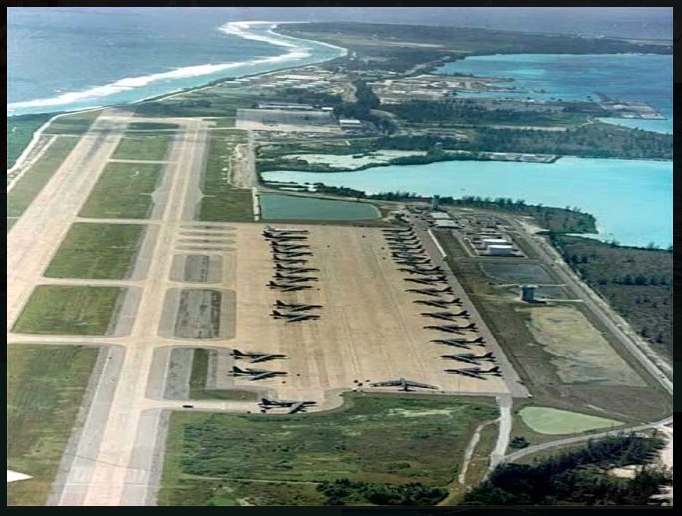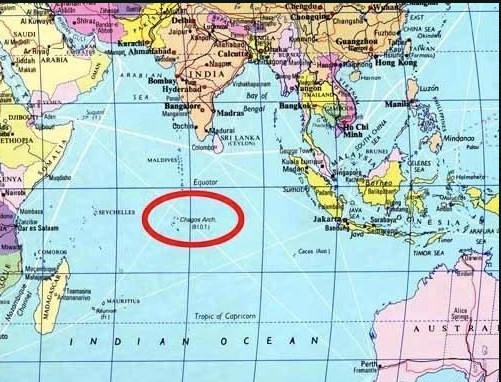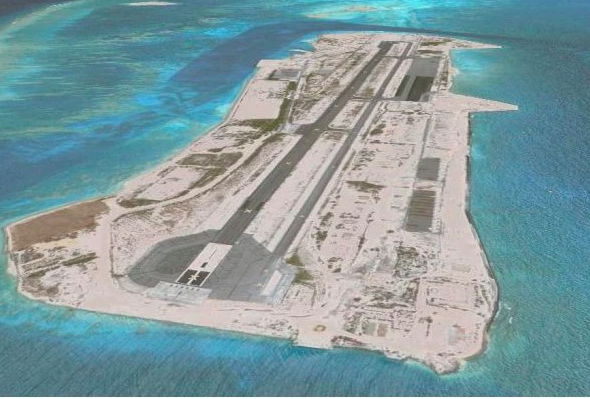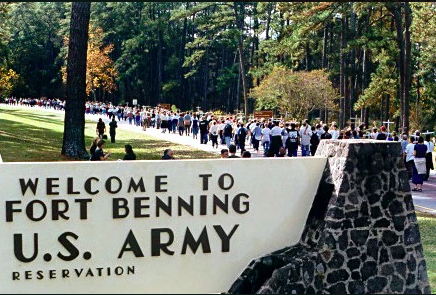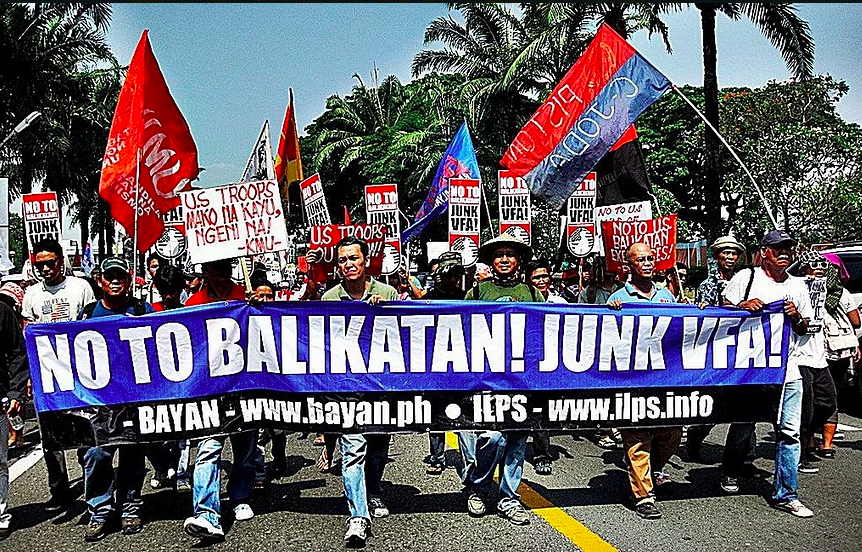The ongoing construction of Chinese military bases and other activities related to the development of atolls in the South China Sea is similar to the U.S. 'lily pad' base strategy during WWII. The ‘lily pad’ base strategy is similar to the earlier practice of maintaining ‘coaling’ or fueling stations throughout the Far East. Coaling stations were locations for U.S. ships to refuel. These stations were aggressively sought along the coast of China after the Boxer rebellion in 1900.
The lily pad strategy is the idea that a frog leaping from lily pad to lily pad escapes the danger of the waters yet the frog traverses the pond with ease. So the use of smaller islands, or Atolls as outposts, enable the military to access the world without the problems of a permanent base on another nation’s soil. Lily pads are military bases without the need to build a costly permanent family (dependents) friendly base. There are five abandoned U.S. airfields on atolls in the Pacific. The newest, active U.S. 'lily pad' is Diego Garcia. This practice will lead to any ensuing conflict to begin as a naval battle.
I think the Chinese claim on the China sea and their build up of the atolls for military purposes is a preemptive response to the U.S. practice of placing bases on Islands and atolls throughout the Pacific and more recently on the large atoll ‘Diego Garcia’ in the Indian Ocean.
It is reasonable to understand that China does not want the imperial power of the U.S. building bases so close to their coastline. China wants to remain free from U.S. dominance in economic and military power. Remember that when Russia planned to place ballistic missiles in Cuba the U.S. was ready to initiate a nuclear war. Yet, the U.S. government has no problem with building up their military presence at the doorstep of China. Powerful nations are often more concerned with their ‘reputation’ than they are with the people affected by their posturing, this is so for China, the U.S. and Russia.
The contested sovereignty over the Spratly Islands is not about possible natural gas or oil reserves. If this were so China would not only build airfields they would also develop oil and gas collection fields. In a less volatile time, the recovery of oil and gas reserves might take place. The Spratly Islands are located between the Philippines and Viet Nam.
Although the U.S. bases in the Philippines were closed, the U.S. has obtained a (VFA) visiting forces agreement with the Philippine government. The U.S. is infamous for remaining in countries and developing a ‘base’ regardless of laws that limit foreign bases e.g. Honduras.
That the U.S. government possesses the most powerful military apparatus ever developed in human history is an easily argued claim. The growth and development of the U.S. military coincide with the development of advanced technology and the U.S. effort to acquire economic power in a developing global economy. The U.S. has nearly 800 bases located in other nations or on small islands and atolls that have been claimed as territories or acquired through a treaty. Most people do not know that U.S. aircraft carriers are nuclear powered and can roam the oceans of the world for twenty years without the need to refuel the reactor.
When I was a youngster and a member of the USMC, I watched U.S. fighter jets and helicopters fly over Philippine cities. I remember wondering what it would feel like to be a poor person in the Philippines and see these war machines fly overhead. Then I wondered how Americans would feel if a foreign nation had a military base on their soil and had to see fighter jets fly over their heads. Today I must imagine the feelings of anger and confusion when young children and adults in other nations now watch unmanned killing machines fly over their heads.
“…this nation cannot endure a democracy at home and an empire abroad.”
-Thomas Mott Osborne –
If colonization is the imparting of cultural values through a people possessing superior forms of power, particularly militarily, then the hegemonic presence of U.S. military bases in other nations is indicative of empire. Since the seventies, U.S. bases have taken on the appearance of little pieces of ‘hometown U.S.A.’ through family housing developments, and metropolitan status with world-class malls, schools, and entertainment. These outposts of militaristic materialism communicate a culture of nationalist ego that in concert with the doctrine of American exceptionalism is reflective of religious belief. Militarism, materialism, and nationalism are identified in the Hebrew and Christian scriptures as perennial idols. The American religion of exceptionalism that justifies the largest military machine ever known does not represent Christianity.
The policing tactics used by an imperial armed force in other nations becomes the policing practice of the government and law enforcement agencies back home. This was first observed in the adaptation of policing practices by the U.S. military in the Philippines brought home to the U.S. Similar events in recent years have produced the surveillance practices of homeland security. Techniques used to monitor the Iraqi population and track terrorists become used back home by persons who learned their skills in the imperial forces.[1]
U.S. bases in other nations are often objects of protest by the citizenry. The reasons are multiplied over the years and include crimes committed by U.S. troops, the presence of prostitution outside the bases, the noise of aircraft, environmental violations, disagreement with U.S. international politics, collusion of U.S. leaders with dictators and organized crime, to name a few.
Most persons in the U.S.A. are shielded from the abuse of women practiced by the U.S. military. However recent information technologies are exposing the hidden practice of U.S. sponsored prostitution where U.S. bases existed (particularly in Asia). When the U.S. troops in Iraq needed some R&R (rest and recuperation) the U.S. military hired the British ran Cunard Cruise Ship company to provide ‘entertainment cruises’ in the Gulf.[2] Family members of troops were not permitted to join the troops. One specified form of entertainment ‘racy movies’ was clearly presented as part of the cruise ships offering.
When I was a young soldier in Okinawa our squadron was ‘awarded’ a special movie day. We all gathered in the base movie theatre to watch a surprise show. I was seated comfortably waiting for a Hollywood blockbuster when a couple of my Christian friends tapped me on the shoulder and informed me the movie was an X-rated flick. We left and sat in the theatre entrance. I have no problem conceiving that the Cunard cruise lines were directed to hire lots of girls as servers and ‘entertainers’. The complicity of U.S. military leaders in providing troops with women abroad has been an ongoing practice since the beginning of the American military empire.
The sex industry in the Philippines is a product of U.S. military practices. The sex industries in South Korea, in the camptowns outside the numerous U.S. bases, are an unwanted stain on Korean society. Protest outside these bases are common, the people want the U.S. military to leave. The tensions between North and South Korea are only exacerbated by the permanent state of war brought on by the presence of U.S. troops. North Korea is the buffer zone between the U.S. obtaining a base on the border of China.
The American taxpayer pays for training the military of other nations. This particular effort has unprecedented complications that have associated U.S. political practices with demagogues and dictators across the world and particularly in Latin America. The School of Americas in Ft. Benning Georgia is responsible for training dictators and death squad members. Of the eleven dictators trained in America, General Leopoldo Galtieri of Argentina is the most notorious.
The U.S. hypocrisy has been to support dictators for maintaining U.S. presence or accommodating the needs of U.S. corporations. Dictators, unlike democratic governments, are subject to ensuring the continued presence of U.S. bases on their soil because they benefit from the support and economics of U.S. presence. The American ethic abroad is self-serving and ignores the populace of the countries where U.S. bases are built.
U.S. bases are political statements of power and intent. The ultimate force of U.S. dominance in nuclear power is the determinative threat that promises genocidal warfare. The U.S. spends more on nuclear weapons than all the other nuclear-armed nations combined. The U.S. possesses a known arsenal of 7,200 weapons (Russia 7,500). The total known nuclear missiles possessed by nine different nations is 15,700. The U.S. remains the only nation to ever use nuclear weapons.
The cost for maintaining the U.S. military empire has left the American infrastructure underdeveloped in comparison to other nations. The harm done by the presence of U.S. bases abroad has tainted the American reputation; we are warmongers and bullies in the eyes of others. The world would be a safer place without the U.S. military empire.
China’s claim on the South China Sea has disturbed all of the nations in the area with its intrusion into the United Nations internationally prescribed territorial rights. Yet, the balance of power requires resistance to U.S. dominance and is dependent upon some form of comparative response to U.S. military presence and expansive intent in Asia. In this respect, China has established a form of military dominance over an area that provides major trade routes for numerous Asian countries with the rest of the world.
[1] See McCoy, Alfred Policing America’s Empire: The United States, The Philippines, and the Rise of the Surveillance State: University of Wisconson Press, Madison, WI. 2009.
[2] STANDOFF IN THE GULF; U.S. to Rent Cruise Ship for Gulf G.I. Furloughs
By MICHAEL WINES, Special to The New York Times
Published: December 15, 1990
WASHINGTON, Dec. 14— The Pentagon said today that it would pay the Cunard Line of Britain $31 million to divert a luxury cruise ship to the Persian Gulf so American soldiers and marines can enjoy brief furloughs from duty in the parched Saudi desert.The 800-passenger ocean liner, the Cunard Princess, has canceled its bookings for the next six months so it can begin gulf duty, Cunard said in a statement today.
Pentagon officials said they were reviewing other proposals from cruise-ship operators to charter ships in the gulf as well. They declined to say whether other contracts would be awarded.The proposal to lease cruise ships for troop furloughs was conceived by Army officials as "a flexible solution to the difficult problem of how to get these troops some R and R" while on desert duty, an Army official said today, using the abbreviation for rest and recuperation leave. Curbed by Saudi Customs


